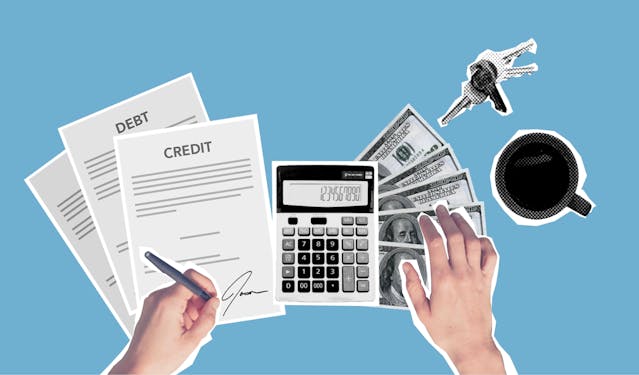Debt can be a heavy burden to carry, especially when you have multiple loans with different interest rates and payment schedules. It can be overwhelming to keep track of all your debts and make timely payments, leading to missed payments and a negative impact on your credit score.
This is where debt consolidation comes in. Debt consolidation is a financial strategy that combines multiple debts into one single loan with a lower interest rate and a longer repayment period. In this article, we will dive into the details of debt consolidation and how it can help you manage your debt more effectively.
What is Debt Consolidation?
Debt consolidation is the process of combining multiple debts into one single loan. This can be done through a balance transfer credit card, a personal loan, or a debt consolidation loan. The goal of debt consolidation is to simplify your debt by combining it into one monthly payment with a lower interest rate.
How Does Debt Consolidation Work?
Debt consolidation works by taking out a new loan to pay off your existing debts. This new loan will have a lower interest rate and a longer repayment period, making it easier for you to manage your debt. Once the new loan is approved, the funds will be used to pay off your existing debts, leaving you with only one loan to pay off.

Types of Debt Consolidation
There are several ways to consolidate your debt, including:
- Balance transfer credit card: This involves transferring your existing credit card balances to a new credit card with a lower interest rate. This can be a good option if you have high-interest credit card debt.
- Personal loan: You can take out a personal loan to pay off your existing debts. This loan will have a fixed interest rate and a fixed repayment period, making it easier to manage your debt.
- Debt consolidation loan: This is a specific type of loan designed for debt consolidation. It allows you to combine multiple debts into one loan with a lower interest rate and a longer repayment period.
Benefits of Debt Consolidation
Debt consolidation offers several benefits, including:
Lower Interest Rates
One of the main benefits of debt consolidation is the lower interest rate. By combining multiple debts into one loan, you can potentially lower your overall interest rate, which can save you money in the long run.
Simplified Debt Management
With debt consolidation, you only have one loan to manage, making it easier to keep track of your debt. This can help you avoid missed payments and late fees, which can negatively impact your credit score.
Longer Repayment Period
Debt consolidation can also extend your repayment period, giving you more time to pay off your debt. This can help lower your monthly payments, making it more manageable for you to pay off your debt.
Potential for Improved Credit Score
By making timely payments on your consolidated loan, you can improve your credit score. This is because your payment history is the most significant factor in determining your credit score.
Is Debt Consolidation Right for You?
Debt consolidation may not be the best option for everyone. It is important to consider your financial situation and goals before deciding if debt consolidation is right for you.
When Debt Consolidation is a Good Idea
Debt consolidation can be a good idea if:
- You have multiple high-interest debts: If you have multiple debts with high-interest rates, consolidating them into one loan with a lower interest rate can save you money in the long run.
- You are struggling to make payments: If you are having trouble keeping up with your debt payments, consolidating them into one loan with a longer repayment period can make it more manageable for you to pay off your debt.
- You want to simplify your debt: If you find it challenging to keep track of multiple debts and their payment schedules, consolidating them into one loan can make it easier for you to manage your debt.
When Debt Consolidation is Not a Good Idea
Debt consolidation may not be the best option if:
- Lack of Stable Income: Without a steady income stream, you may struggle to make payments on a consolidated loan, leading to potential default and further financial strain.
- Poor Financial Discipline: Consolidating debts can free up credit lines and tempt individuals to accumulate more debt, worsening their financial situation rather than improving it.
- High Interest Rates: If the interest rates on the new consolidated loan are higher than what you’re currently paying, you could end up paying more in the long run, defeating the purpose of consolidation.
- Short-Term Financial Crisis: If your financial troubles are temporary and you foresee a quick resolution, the effort and cost of consolidating debt may outweigh the benefits.
Conclusion
navigating the realm of debt consolidation requires careful consideration and informed decision-making. While it can offer significant benefits such as simplified payments, lower interest rates, and a clear path toward debt freedom, it’s crucial to assess individual circumstances before proceeding. Understanding the types of debt consolidation available, the associated costs, and potential pitfalls can empower individuals to make sound financial choices. Remember, debt consolidation is a tool, not a panacea. It should be utilized strategically and coupled with responsible financial habits to truly achieve long-term financial stability and peace of mind. By taking the time to educate oneself and seek professional guidance when needed, individuals can embark on a journey towards financial wellness and ultimately achieve their goals of debt management and financial freedom.





























